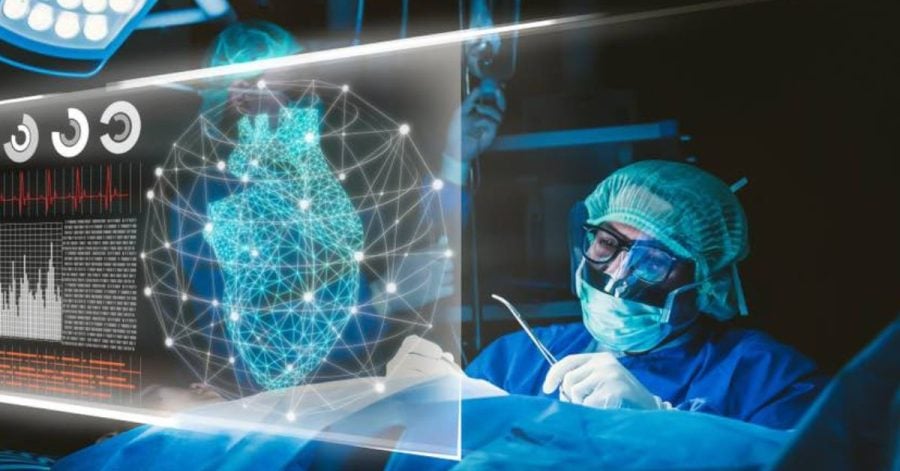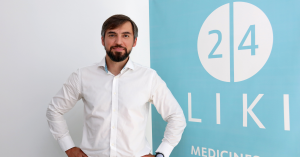AI is making remarkable strides in the healthcare industry, with its potential applications in various aspects of the health industry such as clinical decision-making, public health, biomedical research, drug development, health system administration, and service redesign.
While many countries worldwide are looking to become the early adopters for the use of AI in this sector, Croatia has been among the frontrunners in the CEE region for leveraging AI to advance its healthcare landscape.
During the past few years, the effort in the country has been spearheaded by AI4HEALTH, a non-profit consortium of experts in the field of AI, healthcare, and startups. It all started when researchers from the consortium saw an opportunity for Croatia to establish a so-called European Digital Innovation Hub (EDIH) for the application of AI technology.
“We realized that this is a great opportunity to create a hub that revolves around our AI background, and how technology can get into healthcare and medicine, which I think is probably extremely timely and very worthwhile to get medicine move quicker,” Anja Baresic, coordinator at AI4Health, tells The Recursive.
Around the EU, these digital innovation hubs are designed as a supporting entrepreneurial infrastructure that assists companies, the public sector and other stakeholders in the process of digitizing business, developing digital skills and mediating between service providers in the field of new technologies and users in the field of artificial intelligence, cyber security and high performance computing (HPC).
Baresic herself has extensive experience in machine learning and computational biology, and is a researcher at the country’s largest scientific research center, the Rudjer Boskovic Institute. Along with other researchers and members of AI4HEALTH, what Baresic initially saw as a challenge for Croatian healthcare is that although the development of technology is pretty fast, there is a deficit in the application side.
“There are two outliers that make it really hard. On one hand, most industries and companies actually shy away from the healthcare sector if they are developing AI. On the other hand, there are those that shy away from AI if they’re doing any practice in the healthcare sector. So what we thought is that probably the vast majority of these companies probably had the same problems, and that they needed to help them resolve these challenges much faster,” Baresic explains.
What AI4HEALTH did next was to initiate the creation of a digital healthcare ecosystem of sorts.
“We gathered everyone in the digital healthcare sector in Croatia. We have both the regulatory aspect, the tech companies providing the infrastructure, the academia, the faculties which are doing the teaching, the incubation and access to finance part. And we also have a few healthcare companies which are interested in being the testing ground for those services,” Baresic points out.
The practical use of AI in Croatian hospitals
Some of the AI solutions developed by startups are already adopted in Croatian healthcare institutions.
One of the use cases is a speech-to-text solution that has been developed specifically for Croatian language and trained on medical records, developed by a Croatian AI startup Newton Technologies Adria.
As Baresic explains, the solution is used in more than 200 general and hospital practices around the country.
“What they did is develop a tailor speech-to-text for medical texts in the local language, which is obviously quite difficult since these languages are quite complex. And what it delivers for the clinician is a service where they speak into a dictation device, and it’s translated into a written text. And upon a short check and correction, it speeds up the process of typing a medical report with a factor of 8 to 10. Тhat’s pretty useful and so far it’s been used quite a lot,” Baresic tells The Recursive.
Another practical case sees the use of a wearable ECG (electrocardiogram) device and AI solution for improved diagnosis and therapy of atrial fibrillation, or irregular heartbeat. The device, which combines Slovenian technology and AI solution developed by Polish startup Caridomatics, has the possibility of recording up to seven days of signal, whereas the traditional one is 24 hours only.
“The idea here is that if you manage to catch it early on and treat it, there is a huge preventative value. The setup also has a high potential of being used for primary care, because the general practitioner doesn’t need to have cardiological knowledge and they don’t have to refer to a cardiologist based on a very small amount of data. So you provide them with a nice little report where they are a lot more informed – taking the more complex tasks from secondary practitioners to the GP means it gets more accessible. For example, in the rural areas, there’s always a challenge of whether you’re going to send someone over to the nearest cardiologist who might be kilometers away,” Baresic tells The Recursive.
Then, there is also the use of conversational AI. For example the Croatian startup Mindsmiths and its chatbot Megi was launched towards the end of 2020 and integrated into local hospitals where it helps patients with chronic conditions, suffering from hypertension.
“The chatbot helps them track their blood pressure and heart rates, it puts them into the system and collects data and then exposes those data to the cardiologist on the other side. It also guides patients through allowing them to be active participants in their own healthcare, which for chronic conditions is probably the only way to go,” Baresic emphasizes.
The potential for the further use of new AI solutions
Umo neuroscience is a Croatian startup that develops technology and processes for neurofeedback and biofeedback. According to its CEO and founder Marin Maletic, the use of AI in healthcare will reach new heights in the period that follows.
“We see that clearly in our business of developing and providing innovative neurofeedback services, that lies on the boundary of healthcare and wellbeing. We are working, as we speak, on the use of AI in the fields of sales, client management, development of neurofeedback protocols, EEG signal processing – practically wherever we look, we see AI as a potentially great tool for improvement,” Maletic tells The Recursive.
However, there is also a space for improvement, and according to him, this could be achieved with having a more humanistic approach to AI, like some Croatian companies are already doing.
“So many people feel alone and in the dark once they encounter a serious diagnosis. It actually happens with all kinds of health issues, but when it comes to life threatening conditions, it is a cause of great pain and fear. The healthcare systems inevitably treat humans like a part of statistics lacking the resources to make them the agents of the healing process. Mindsmiths did some great things in that area, I think they are a great example of a humanistic approach to AI that I generally favor very much,” Maletic adds.
In that sense, according to Baresic, AI technology was never meant to replace doctors – only to help them do their job better and have more quality time with their patients. According to a Deloitte report, AI applications have the potential to free up 1,659 million to 1,944 million hours every year.
“Studies show that you should always have a 20-minute examination with your specialist. However nowadays, you’d probably only get two and a half minutes during which the doctor will have to ask you questions based on all the other thoughts they have – they have to do both physical tasks, treating patients, the administrative tasks, writing down data, filling out the forms, and everything else. So alleviating all these things, and moving them away gives more time for medical experts to get necessary insights. And we need to have more time for these insights, so the only way to do that is automating some of the tasks in the process,” Baresic concludes.








